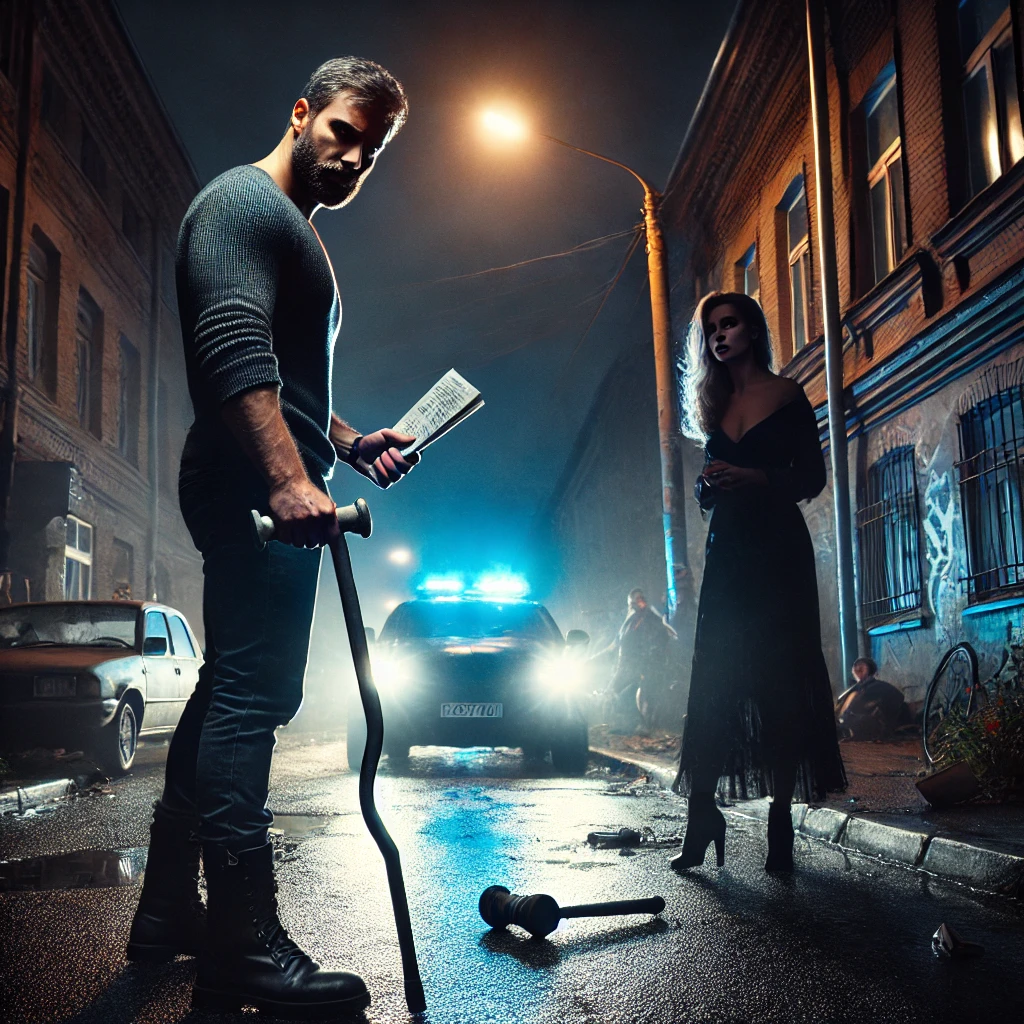Russia’s Soldiers Bringing Wartime Violence Back Home: A Growing Concern
“I’m a veteran of the special military operation, I’m going to kill you! ” Those were the chilling words Irina heard as she was brutally attacked by a man in Artyom, located in Russia’s Far East. Irina had been returning home from a night out when the assault occurred. He kicked her and hit her with his crutch, such a violent motion that it broke the crutch in two pieces.

When the police came, he was very assured, showing them evidence of his service in Ukraine, stating that the involvement in the conflict ensures immunity from prosecution.
More Violent Incidents
Irina is not alone in this case. It is increasingly reported that more and more violence committed by returning soldiers appears to have increased. As Verstka, an independent Russian news service, reports, at least 242 Russians have been murdered by soldiers returning from Ukraine, with another 227 seriously injured. Most of them, like Irina’s murderer, had a crime record before they were let free from prison to join the army for Russia’s Ukrainian campaign.
The Wagner Group is the most infamous of all Russian private military companies, and they were enlisted. According to the BBC, over 48,000 prisoners were deployed to fight in Ukraine under Wagner’s banner. Nonetheless, since the death of Wagner’s leader, Yevgeny Prigozhin, last year in a plane crash, the Russian Ministry of Defence has taken over this recruitment process.
Impact on Russian Society
The return of these fighters has had deep-rooted impacts on Russian society, nurturing the atmosphere of fear and impunity. Sociologist Igor Eidman’s warning concerning the long-term consequences was described as a situation of moral inversion, when traditional notions of right and wrong appear to be distorted. “People who have committed horrific crimes-murderers, rapists, and others are not only escaping punishment by fleeing to war, but they are also being glorified as heroes,” he said. Pro-Kremlin media is promoting this theme of heroism by habitually depicting participants in the conflict as defenders of Russia. President Vladimir Putin himself has called these returning fighters the country’s new “elite.” That kind of glorification, combined with the fact that the Russian state regularly expunged convictions or grants pardons to those who have served time, sets a very dangerous precedent.
Former prisoners, hardened in the conflict and burdened with the psychosomatic distress of war, return to civilian life, feeling that they deserve this new status and often carrying a predisposition for violence.
A Justice System Under Siege
The Russian justice system cannot cope with this stream of violent veterans. Reports are already many to mention how some recidivist soldiers have successfully avoided severe punishment by way of loopholes in the law. Sometimes, their involvement in the war is being taken as a mitigating circumstance whereby reduced sentences are meted out. Other times, recidivists merely escape prosecution altogether by volunteering to return to the front lines. This is discouraging to many of the officers in law enforcement. Former police officer Grigory complained, as reported in an interview by Novaya Gazeta: “Four years ago, I put him away for seven years. And now here he is, standing in front of me, saying, ‘You can’t touch me now.””.
It’s our time, the time of those shedding blood in the special military operation,’ she says. Such statements are far from isolated among Russian police who feel impotent in front of the return of soldiers with a sense of impunity.
A Culture of Violence
Apart from the immediate fear of violent crime, observers say that Russia is now threatened by a deeper cultural shift. Sociologist Anna Kuleshova said that the return of battle-hardened soldiers was leading to the increasing normalization of violence among Russians. “We see violence becoming part of the everyday landscape-from schools to households, from interpersonal relationships to public spaces,” she said.
This trend is nurtured by several factors: militarization of society, increasing rightism in the government, and through a glamorized image of war. The military has always been a sign of power in Russian culture. Now, it has become an excuse to absolve past sins while violent crimes happening on local territory are overshadowed, if not forgiven, by the “heroic” acts of soldiers on the battlefields.
Legislative Changes and the Culture of Silence
The Russian government has enacted new legal provisions that may unintentionally be protecting these veterans from accountability. There is a law against making any “discrediting of the Russian armed forces.” This compels many of the victims to keep quiet because reporting crimes perpetrated by a veteran might be misconstrued as criticizing the military and lead to an enforced technical legal process. Consequently, most of the victims live with their fears and are found silenced. For instance, the trend of such tendencies was criticized by the leader of the prisoner rights organization Russia Behind Bars Olga Romanova. “The main effect is that the gap between crime and punishment widened in the public’s perception. If you commit a crime, you can no longer be sure of being punished,” she explained. It has accompanied the disturbing increase in crime rates.
Serious crime cases in Russia increased by almost 10% in 2023, and during the first half of 2024, the number of persons convicted on military affairs was twice that of the previous year.
The Future: A Transitional Society
The return of Russia’s soldiers from Ukraine is more than a military or legal issue; it is a societal one. The stream of bloodshed underlines a nation struggling with the psychological wounds of war, the romance of military service, and a justice system struggling to keep its head above water. Such an emphasis by the government on military heroism and pardoning crimes in the name of patriotism raises very critical questions about the immediate future of Russian society.
The war in Ukraine is a deep warning sign for Russia. Heroism and criminality are increasingly mingling lines; it remains unclear if Russian society will solve these problems or if it will continue toward the end where wartime violence blurs with everyday life and affects not only those who come into physical contact with returning soldiers, but also fundamentally the moral premise of the nation. It presents a quandary for any government that wants to preserve the nationalist narrative while being in charge of an emerging wave of domestic unrest. For now, this balance of power appears tilted toward those who have fought in the “special military operation,” casting a long shadow over Russia’s justice system, societal norms, and future stability.



